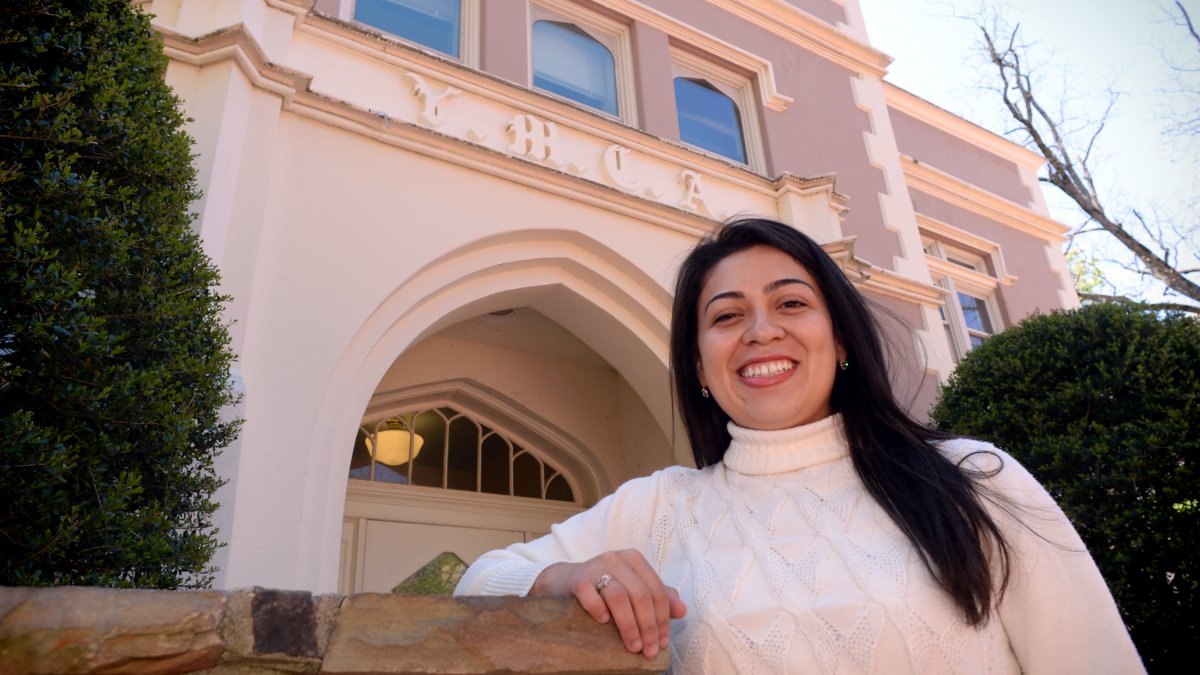Carolina alumna named Luce Scholar
During her Luce year, the Siler City, N.C., native will extend her work to a new continent as she works on immigration issues facing Asia.

For the past three years, S. Jakelin Bonilla has been encouraging high school seniors to take advantage of Campus Y’s Global Gap Year Fellowship to conduct public service across the world.
This summer, the tables will turn — as Bonilla will begin a year-long trip of her own to Asia. The 2012 UNC-Chapel Hill graduate was announced a recipient of the prestigious Luce Scholars Program this week.
Bonilla, who holds a bachelor’s degree in global studies from the College of Arts and Sciences and a minor in entrepreneurship, is the 37th Luce Scholar from the University of North Carolina at Chapel Hill and the seventh in the last five years. The program provides stipends, language training and individual professional placement for 15 to 18 scholars each year.
“Through her tireless efforts and dedication, Jakelin Bonilla has helped strengthen the global immersion programs at UNC-Chapel Hill and exemplifies the very essence of what defines a Luce Scholar,” said Chancellor Carol L. Folt. “Her experiences during her fellowship in Asia will further invigorate her passion for international diplomacy. I’m very excited for her.”
Since she was a teenager and served as a translator for Latin Americans in the United States, Bonilla has been an activist for immigrants. During her Luce year, the Siler City, N.C., native will extend her work to a new continent as she works on immigration issues facing Asia.
The daughter of El Salvadorian immigrants, Bonilla has spent much of her life working with the immigrant community in North Carolina and continued her work when she arrived at Carolina in 2008 on a Pogue Scholarship and as a member of the Carolina Covenant Scholars program.
In addition to studying international politics and Latin American studies, Bonilla worked outside the classroom to aid the immigrant population including serving as a mentor with the Scholars Latino Initiative for four years. During her sophomore year, she founded Linking Immigrants to New Communities, which takes students off campus into immigrant neighborhoods to teach English classes using a curriculum based on the daily lives of immigrants.
“Jakelin’s selection by the Luce Scholars Program is a superb investment,” said Mary Floyd-Wilson, professor of English and director of the Office of Distinguished Scholarships. “As an immigrant activist, she is committed to improving the lives of others, and she will use her Luce experience to find new ways to tackle humanitarian issues. Simply put, Jakelin is a powerful force for good.”
Bonilla also conducted ethnographic research in Central and South America as part of the Burch Fellowship and Summer Undergraduate Research Fellowship.
Despite receiving many job offers after graduating, Bonilla didn’t want to leave the Campus Y having worked closely with the organization through her undergraduate studies.
“It became my home at Carolina and allowed me to apply everything I learned in the classroom,” she said.
She joined the staff full-time in 2012 as a program coordinator for the Global Gap Year Fellowship and was named director in 2013.
“Jakelin Bonilla has an extraordinary skillset forged out of an extraordinary life,” said Richard Harrill, director of the Campus Y. “She has used her personal example as a mentor and mentee in the Scholars Latino Initiative and a Pogue Scholar to reach back to help others from similar backgrounds follow in her footsteps. She has shaped the way the UNC student body understands issues such as immigration, race relations, power and privilege. To my mind, she exemplifies the very best values and achievements of our University and our society.”
The Henry Luce Foundation launched the Luce Scholar Program in 1974 to provide an immersion experience in Asia for young Americans.
“I am eager to learn from immigration activists working in grassroots organizations. Like in other areas of the world, the forces that drive immigration-economic opportunity, political oppression, and even environmental factors-are only increasing in Asia,” Bonilla said. “I am especially interested to learn from women who have risen above the marginalization of their own societies and are the forefront of change.”




